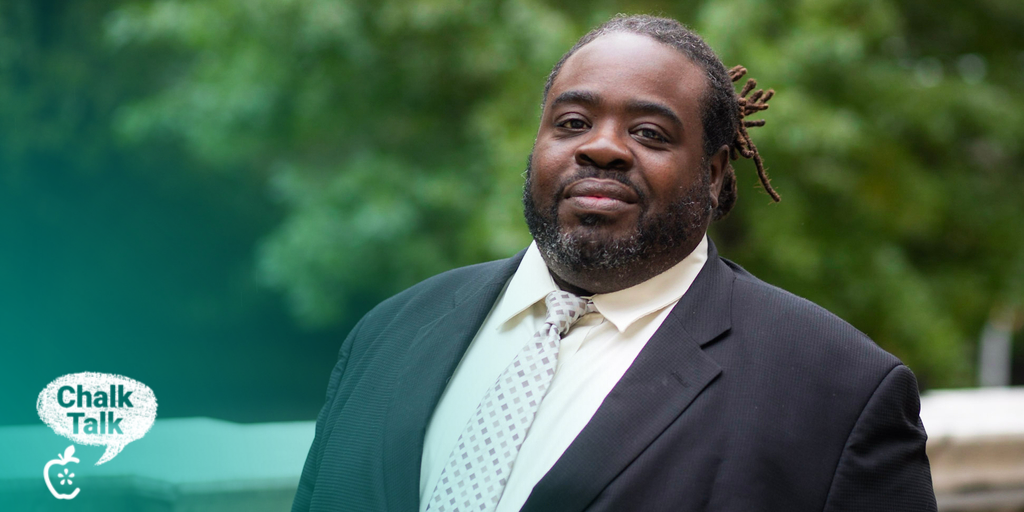October 8, 2019
Chalk Talk: Arthur Everett

Arthur Everett, a seasoned New York City high school social studies teacher, thought that his love of teaching and leadership would naturally lead him to become a principal, where he could still create positive outcomes for children. He enrolled in two master’s programs. But something just didn’t click.
“I was conflicted. I finished my thesis, completed hours of training in pedagogy and education leadership. But when it came down to making a decision I knew I didn’t want to leave the classroom,” Everett says.
And Everett is just one of thousands of teachers around the country that deal with this unsettling pressure to leave the classroom to advance. According to E4E’s 2018 national teacher survey, an overwhelming 92% of teachers stated they wished there were more opportunities as a teacher to further their career and professional skills while remaining in the classroom.
“When it came down to making a decision, I knew I didn’t want to leave the classroom,” -Arthur Everett, #E4ENY member on #careerladders for teachers
Everett was particularly moved to stay in the classroom by his experience as a black male. “There’s already a lack of black male educators. I’m one of the few faces that look like the kids and have similar cultural experiences. It’s more important for my students to have a daily interaction with me.”
To continue to find ways to grow professionally, Everett looked at the school, district, state, and federal levels. He’s assumed school instructional lead positions, led curriculum development, joined equity and evaluation committees within his union and district, and has held a competitive Teaching Ambassador Fellowship with the U.S. Department of Education. Any opportunity he sees he can lend his voice or his hand, he’s there.
“There’s a systemic problem within the education system that a teacher’s growth isn’t very flexible.” -Arthur Everett on #careerladders #E4ENY
Arthur can proactively extend himself to continue his growth, as can others. But as he says, “there’s a systemic problem within the education system that a teacher’s growth isn’t very flexible. I didn’t come into teaching thinking about the next thing. I was just trying to be a good teacher. It took years to realize I’ve got teaching down, but when I got there, I thought, ‘now how can I improve?’”
Arthur believes that when teachers get to this point in their careers they should have the option to take on a hybrid position. For example, he wants to use his principal training to coach others while teaching part-time. In hindsight, he says hybrid teachers can attend conferences, network with others across the country, and engage in district and federal opportunities. Strategically, these occasions can generate ideas for teachers to bring back to their schools that go beyond checking off a box on a professional development form.
But hybrid roles rare, and this can put principals in a tough spot. How can a teacher travel for work if there isn’t a budget in place to account for another teacher to jump in for a class?
“Those time constraints tend to be in direct opposition to the idea that teacher leadership is really important,” says Everett.
Structurally, Everett thinks we need to think differently about how we invest in teachers’ growth and what expectations are for advancement–especially for veteran teachers like him. That could start with more budget allocations to schools that would allow them to get creative with staff roles.
In the meantime, Arthur says there are plenty of leadership and fellowship opportunities out there for teachers–free in fact–to keep your eyes peeled for inside and outside of a school building.
“I looked for these opportunities in my building that met during the day or anything outside that allowed me to be a part of a larger conversation,” he says. “I showed up and was my best self with the intention to always learn as much as I could.”
Share Arthur’s story on Facebook and Twitter!
Currently Reading
Chalk Talk: Arthur Everett